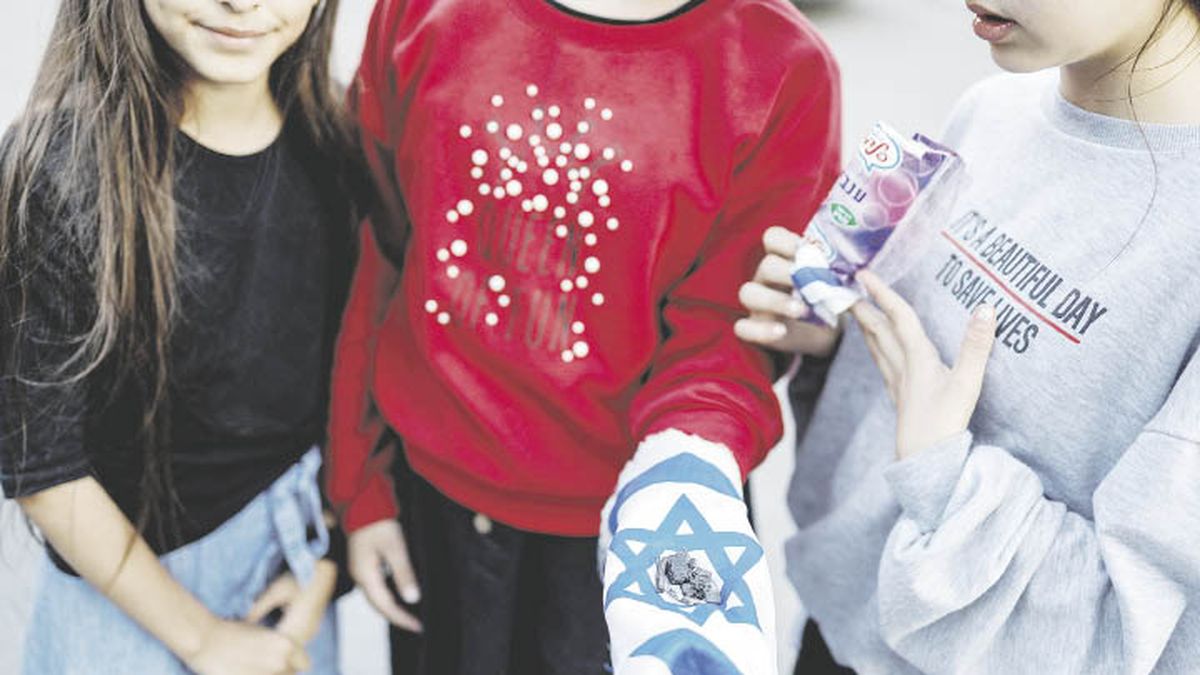Yiron was created in 1949, a few kilometers from the border with Lebanon, and on the ruins of a Palestinian town destroyed in the first Arab-Israeli war (1948-1949).
With its creation, the authorities sought to defend the borders of the young nation that, on May 15, 1948, emerged victorious from the conflict that pitted it against the armies of five Arab countries.
Efrat Pieterse still remembers with nostalgia “the collective life with the other children” in his group. He was born in Yiron 69 years ago and explains that the educators were the ones who took care of the children. “We were nine, together all the time, like a family…”, he recounts.
Today, Yiron is no longer what it was. The old community houses an agri-tech company, the modest houses have been replaced by fenced-off middle-class ones, and the children live there with their parents.
The economic crisis of the 1980s and the fall of communism in the Soviet Union helped to undermine the cooperative kibbutz model. And the emergence of new individualistic and family values at the beginning of the 21st century also ended up turning most of these peoples into liberals, Achouch explains.
Israel’s population is one of the fastest growing in the world, having grown 12-fold since 1948.
The country today has 9.7 million inhabitants, of whom 7.1 million are Jews (73.5%) and 2 million Arabs (21%), according to Israel’s Central Statistics Office. The rest are non-Jewish immigrants.
Israel’s rapid population growth can be largely attributed to Jewish emigration from all regions of the world, although significant numbers came from the former Soviet Union in the early 1990s.
The national identity was forged in part in compulsory military service, although a part of the population was exempted from doing it, such as the Arab minority and almost all ultra-Orthodox Jews, who represent 12% of the population.
In a 2015 speech, then-President Reuven Rivlin had identified four “tribes” to define Israeli society.
Three of them were Jewish – secular, religious nationalists and ultra-Orthodox – and one Arab. Rivlin lamented that the four of them didn’t mix and mingle, reading different newspapers and going to different schools.
Rivlin added that these communities had “different views” of what the State of Israel should be and that “mutual ignorance and lack of
of common language only increased the tension, fear, hostility and competition” between them.
“Society is very fragmented at the ethnic level, but also at the level of social classes…”, declared Sylvaine Bulle, a sociologist at the French National Center for Scientific Research (CNRS) specializing in Israel.
Within the tribes identified by Rivlin there are other divisions, such as the Ashkenazi, originally from Europe, and the Sephardic Jews.
There are also new immigrants and the “sabra” -those born in Israel- and, on the Arab side, Muslims, Christians or Druze.
For many years, Ashkenazim (the Jews from the Central and Eastern European countries from which the founders of the Zionist movement hailed) “held the political, judicial and economic reins” of the country.
Migration
In the 1950s and 1960s, Jews from Iraq, Yemen, and the Maghreb (called “Mizrahi”) also came to Israel.
They were “extensively discriminated against by the state,” Bulle notes, referring to the strategies of the Labor Party, which dominated Israeli politics until 1977, when the right won. Since then, it is the right that leads the country.
“What has changed in 75 years is that the Ashkenazi elite has aged, is no longer representative of the electorate, and is no longer seen as legitimate by the Mizrahi, who seek to move up the social ladder,” Bulle explains.
“In recent years we have seen a turn to the right in public opinion,” adds Achouch.
The political identity of the young generations was forged, among other things, by the suicide bombings of the second intifada (the Palestinian uprising of 2000-2005 against the Israeli occupation), the failure of the peace process and by the “infiltration of the right religious in the Ministry of Education for decades”, highlights the researcher.
Since January, the country has been deeply divided by the government-sponsored judicial reform project, one of the most right-wing in Israel’s history.
The Executive believes that the reform is necessary to balance the powers, diminishing the prerogatives of the Supreme Court. But for his detractors, the legislative change poses a threat to democracy. The project has unleashed an unprecedented wave of protests.
Division
For Bulle, the current crisis reflects a social division in the country, but, at the same time, this “popular mobilization” goes against “the extreme fragmentation of Israeli society.”
The demonstrations “show that as a whole, Israelis remain committed to democratic values, a sense of justice, ethics and equality…”, and in this sense, “the people who are mobilizing today express a certain nostalgia for Israel’s socialist roots.
The Arab minority, however, has been left out of the debate that is shaking society, he points out. “For them, democracy has always been lacking,” she says.
In his opinion, some laws “weakened the notion of democracy and equality among citizens.”
The researcher cites the 2018 law that defines Israel as the “Nation State of the Jewish people”, which made Hebrew the only official language of the country, granting Arabic only “special” status.
Avner Ben-Zaken, historian and president of the Institute for Israeli Thought (IIT), a Tel Aviv-based think tank, believes that “it is not the presence of these different groups that is a problem, but the very structure of the state. ”.
Elections, he maintains, are governed by a system of proportional representation that, according to him, lends itself to clientelism and competition between different social groups that come to “hate” each other.
Ben-Zaken also criticizes the fact that there is no Constitution. “We do not know what this State is,” he warns.
For him, it is necessary to “define the identity of the country as Israeli”, and not only as Jewish and democratic, within the framework of a Constitution, since it is “the common ground” that all groups have.
AFP Agency
Source: Ambito




